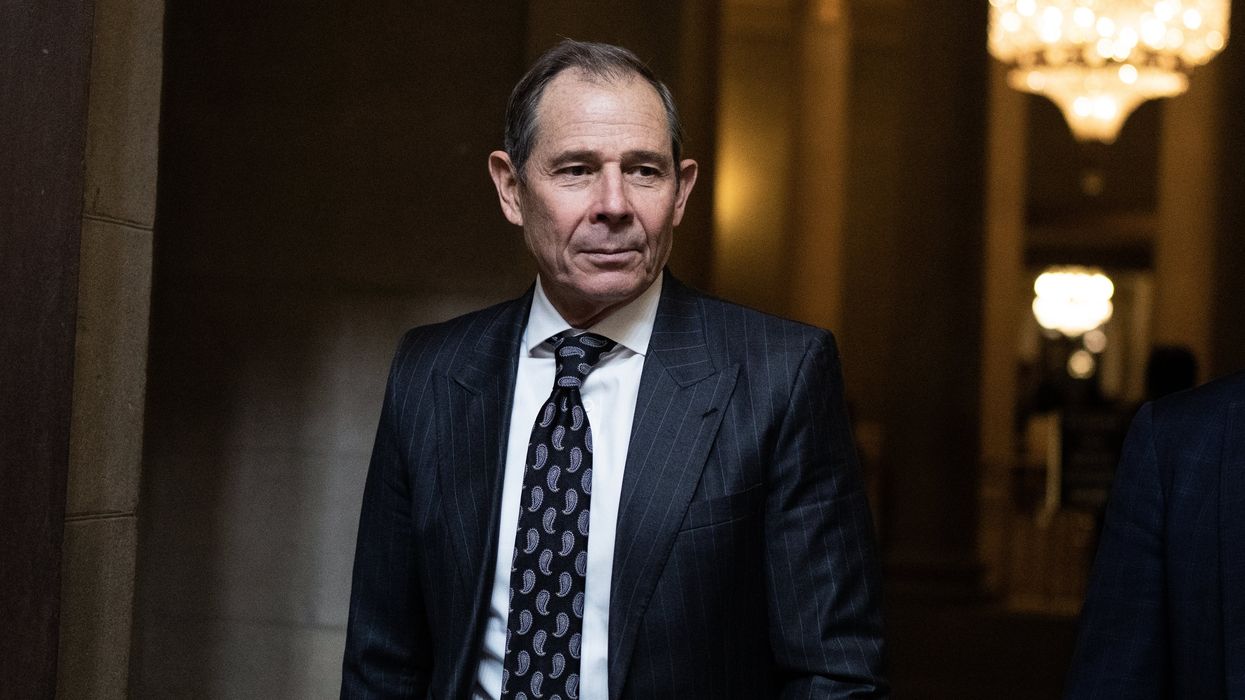They both happened on the same day. First I read that Merriam-Webster selected “polarization” as the 2024 Word of the Year. And then I listened to remarks delivered by Sen.-elect John Curtis (R-Utah) at the Citizens’ Climate Lobby’s fall conference.
Merriam-Webster defines polarization as “division into two sharply distinct opposites; especially, a state in which the opinions, beliefs, or interests of a group or society no longer range along a continuum but become concentrated at opposing extremes.”
Curtis’ description of his work with CCL volunteers in Utah was a masterclass in resolving polarization. A former mayor of Provo who was sworn in as a member of the House of Representative the same month that Donald Trump was sworn in as president in his first term, Curtis spoke candidly about his learning curve as a new member of Congress struggling to address climate change.
Proud of the work he had done as mayor on issues like clean air, he recalled a hike with CCL members early in his first term, something that has become an annual tradition. That first hike lasted eight hours. How many of us spend eight hours with our newly elected member of Congress?
“[During the hike] somebody in the group said, … ‘What are you doing about carbon?’” Curtis remembered. “If I'm honest, it caught me off guard. I had spent very little of my time thinking about carbon, greenhouse gas emissions and climate.”
Soon he was in Washington, D.C, caught up in these discussions.
“I was at a real loss on how to respond,” Curtis continued. “So I responded like a lot of Republicans typically respond, not so much pushing back but more dodging and feeling very uncomfortable when asked about climate.”
Unsatisfied with his own answers, Curtis began learning more about climate. “It made me a little bit nervous,” he said, “because Republicans, particularly seven years ago, just didn’t talk about climate, carbon and greenhouse gas emissions.”
Curtis complimented the Utah CCL volunteers for not giving up on him. He might not have been able to name it, but he was empowered by their use of transformational advocacy.
“It would have been really easy for my … CCL friends and others to criticize me for not supporting certain bills.,” Curtis remembered. “Instead [they] found things that I did that they liked, and they found bills I supported that they liked. [I know] it was very inadequate for what they would have hoped or aspired to. But that approach of embracing me and making me feel good about myself and what I was doing, actually inspired me to want to do more.”
And he did. He knew he had to get Republicans talking and launched the Conservative Climate Caucus.
“A Republican talking about climate,” Curtis said, “from a state where our state rock is coal and where I have a county called Carbon County was a little scary for my staff and for me.”
The Conservative Climate Caucus, which now has 87 members, started with several dozen. “They literally came to me and said, ‘I want to be part of your caucus. It's finally time for us to be doing this.’ And the way I've interpreted that is that Republicans were tired of getting their teeth kicked in at town hall meetings, they were tired of not having answers. They were tired of looking like they didn't want to leave the Earth better than we found it. …
“.As they grew comfortable talking about climate, they stopped worrying about the science and they started worrying about how you reduce carbon. It’s almost a magical thing.”
Curtis initiated a letter to Speaker Mike Johnson (R-La.), signed by 18 House Republicans, on the Inflation Reduction Act, the most far-reaching climate legislation ever enacted. Writing publicly to Johnson “tells you how committed these 18 names were on that letter. … And to his credit [ Johnson] said, ‘When it comes to the IRA we'll use [a scalpel].’ … With so many of us committed to the good parts of the IRA, I think that bodes well.”
Curtis expressed his appreciation for CCL’s approach, encouraged out-of-staters to join the hike, and concluded, “It's amazing how much you agree on when you're out in the beautiful outdoors and how the things you disagree on dissolve so quickly.”
Curtis’ remarks and CCL volunteers’ commitment to transformational advocacy are an important antidote to Merriam-Webster’s word of the year.
Daley-Harris is the author of “ Reclaiming Our Democracy: Every Citizen’s Guide to Transformational Advocacy ” and the founder of RESULTS and Civic Courage. This is part of a series focused on better understanding transformational advocacy: citizens awakening to their power.




















